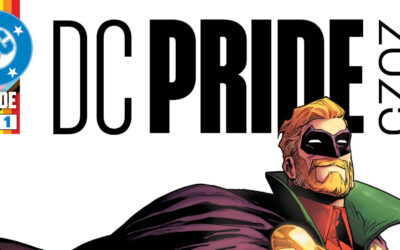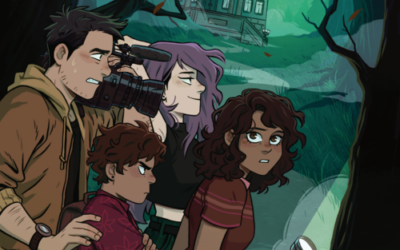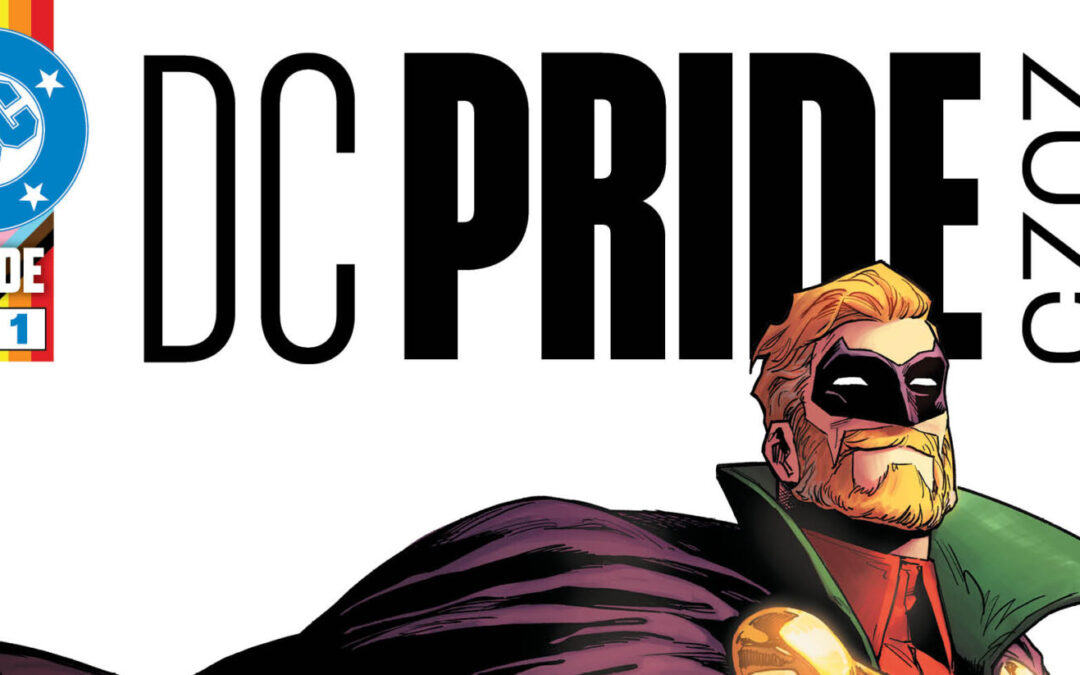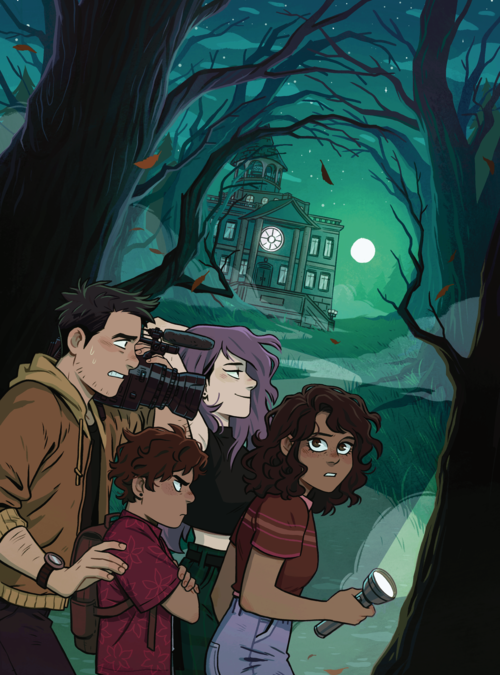Eliza and Nate Dushku are like a lot of siblings-their words overlap, and they’re obviously close-except both happen to be very good-looking (seriously, what is with their family’s genes?) and have spent a lifetime acting and now producing in film and television. Their latest collaboration, Mapplethorpe, directed by Ondi Timoner and starring Dr. Who‘s Matt Smith as the eponymous enfant terrible, is now open in limited release after a run at Tribeca Film Festival last spring.
The Dushkus endear themselves to me early on. Nate is wearing a high school jacket recently unearthed by their mom. Like Eliza’s famous Buffy the Vampire Slayer character Faith, the two grew up in the Boston area, where I was attending college when I first discovered her. Eliza apologizes unnecessarily for grabbing food before joining us at Tribeca’s posh Roxy Hotel. As I watch her start in on some chicken wings, I think, “Slayers… They’re just like us!” I’ve just seen Mapplethorpe and am eager to discuss the film. It turns out I was a freshman at Emerson when the Dushkus first started development.
“This one was just something that really spoke to me when Nate sent the script to me in 2002,” Eliza professes. “It’s been a long time. Just with Mapplethorpe being such a boundary pusher and such a fascinating artist, and … the art that he made and the person that he was sort of being in contradiction. You know the controversy about him but then there was such humanity in him, too, and I feel like it was just exciting for us to tell that story.”
“It’s not easy getting an independent film financed and shot in New York City anyway,” Nate states, “and an artist that’s this controversial, whose work was censored … trying to put this out into the mainstream, we knew there were going to be challenges. But Robert was an icon not just to artists but… he’s not Lady Gaga, he’s not Ru Paul, he’s his own [thing]-but he came before, in many ways, those people were influenced by him and-“
“He forged a path, you know?” Eliza chimes in.
“He forged a path,” Nate agrees, “and it’s really cool to be holding his legacy.”
It’s a responsibility the pair took seriously through every aspect of production, which recreates three decades convincingly through music, wardrobe, and a vast number of locations. The cast, led by Smith, was more than up to the job.
“[Matt] was so prepared, every day, even towards the end, he got really sick, he got some kind of bug-and he just plowed through it,” Eliza gushes. “He really just embodied the character, the way he improvised, the way he would interact with the other characters, it was extraordinary to watch, you know. Lucky to have him.”
Nate agrees, explaining that the screenplay’s time span presented some unique challenges: “In maybe one day, you’d be doing a scene from the 60s and also a scene from the 80s.”
“In one location,” Eliza adds.
“It’s like, ‘you’re dying! You’re 18 years old, you moved out to New York City. It’s the mid-70s…'” Nate recalls. These drastic shifts also extended to the actor’s hairstyle: “We had Wigmageddon,” Eliza jokes, “there were a lot of wigs on the actors.”
Photo by Andrew Toth
Smith’s costars also impressed the duo. “Marianne [Rendon], she read for the role and it was like, there’s real life young Patti [Smith], in the flesh,” Nate declares. He also has kind words for newcomer Brandon Sklenar (Edward Mapplethorpe) and veteran actor John Benjamin Hickey (Robert’s lover Sam Wagstaff). “[Brandon’s] playing opposite Matt, and we just needed somebody who could go pound for pound with him,” Nate explains. “John Benjamin Hickey is another story, he’s a pro, he’s been doing this for a long time, but that was great to see [him and Smith] come together. Every single actor just humanized the role and just gave it levels.”
This being the Robert Mapplethorpe story, there’s considerable nudity and sexual content in the film. This wasn’t a problem in the acting realm, at least. The actors “responded really well,” Eliza states. “We sent them the script, we sent them the material-it’s a choice, even for me as an actor, and everyone who came and knew what the movie was and knew what the artist was, and we were really impressed with the performances. And in terms of the extras in the sex dungeon [sequence], yeah there are a lot of rules in SAG, and protections and things. Some of them came in their own wardrobe.” Eliza says many of the background performers came from the leather and kink community, and credits Central Casting with finding them all. “Central Casting, they have been around forever and they put their own people on it,” Nate elaborates. “They were so excited about the project and whenever we needed something, we’d say ‘this is what we need’ and they’d send pictures for us to choose from. They interviewed them, because they have to stand by the people they’re sending over to be on set. It’s just like any other actor, really.”
While the cast was game for the racy scenes, some of the potential locations and soundtrack contributors were another matter. When I tell the pair that I loved the vintage soundtrack, Eliza reveals that a number of performers “had deep Christian values and didn’t want to have their songs in this kind of film, and we’d have to say, ‘OK.'”
“I mean, that happened during production, too,” Nate says. “We had a really hard time finding the church to shoot in, and then we had a really hard time, [this] church I guess, owned this [building]-“
“Don’t tell him the name!” Eliza scolds. I assure them the name will be redacted and suggest referring to it only as “Church X.”
“Church X,” Nate continues, “this other location that I guess was owned by them, they pulled out at the last minute.” Despite these challenges, the producers strove to reinforce the narrative with deliberate choices. One of the songs that was secured is “I’m a Man” by Jobriath, which Eliza handpicked for the end credits. “He was the first ever gay musician to have a major recording deal,” Nate tells me. “He was a gay glam rocker … he basically got torn down by the media, and then he moved into the top floor of the Chelsea [Hotel, where Robert and Patti lived] and then he died of AIDS at 38 years old. And that was another angle to it, that we wanted to try to have the narrative of the music, fit Robert’s narrative.”
So after all the trials and tribulations of Mapplethorpe, would Eliza consider producing again? In fact, she and Nate are developing projects, including the “big, epic TV series” The Black Company, though the actress/producer has other things happening. “I live back in Boston these days,” Eliza says. “Marrying a Boston boy this August, and going to school in Cambridge, working on my bachelor’s degree in holistic psychology.” I tell her that I always dreamed of going to school in Cambridge. “Me, too!” she exclaims. “So I just friggin’ went for it.”
Eliza adds that she might be starting a family soon, “but I think I’ll always have a tie in to the business. My brother and I have always been so close and share a lot of excitement around different stories and storytelling.”
Eliza also shares the excitement of her Buffy fans. I ask her for her take on being an icon to the LGBT community. “Awww!” she says. I mention the panel at Flame Con in 2017, in which panelist JE Reich responded to the question “Buffy and Angel or Buffy and Spike?” with “Buffy and Faith!” Eliza smiles knowingly and answers only, “Yeah.”
“I’m always honored and tickled when I hear that,” she continues. “I feel the love, you know, from guys telling me that I’m the only female on their ‘list,” and their boyfriend’s totally cool with it, to like, I’m the only one that would turn her!” Eliza laughs. “It’s cool that we’re living in a world today where we can just be out with like, what does it for us. [Buffy] was such a-I mean, we throw the word ‘groundbreaking’ around a lot, but it was a groundbreaking show!” Eliza adds with amazement that the series “really spoke to people and changed a lot of people’s lives! Because I meet them frequently, and they profess exactly just how it did, and it’s awesome. A lot of actors never have that opportunity to be part of something that just has such a beating heart. And such an effect on so many people, and I’ll always just be blown away and grateful for that.”
Eliza explains how this passion has benefited her personally, through “that feeling that I’ve helped people get through really hard shit. And then a few months ago, I had to go through some really hard shit (in January, she shared her experience with sexual abuse at the age of 12 at the hands of True Lies stunt coordinator Joel Kramer) but my fans kind of inspired me in the same way they told me that I inspired them so it was really kind of a beautiful circle thing.””







0 Comments